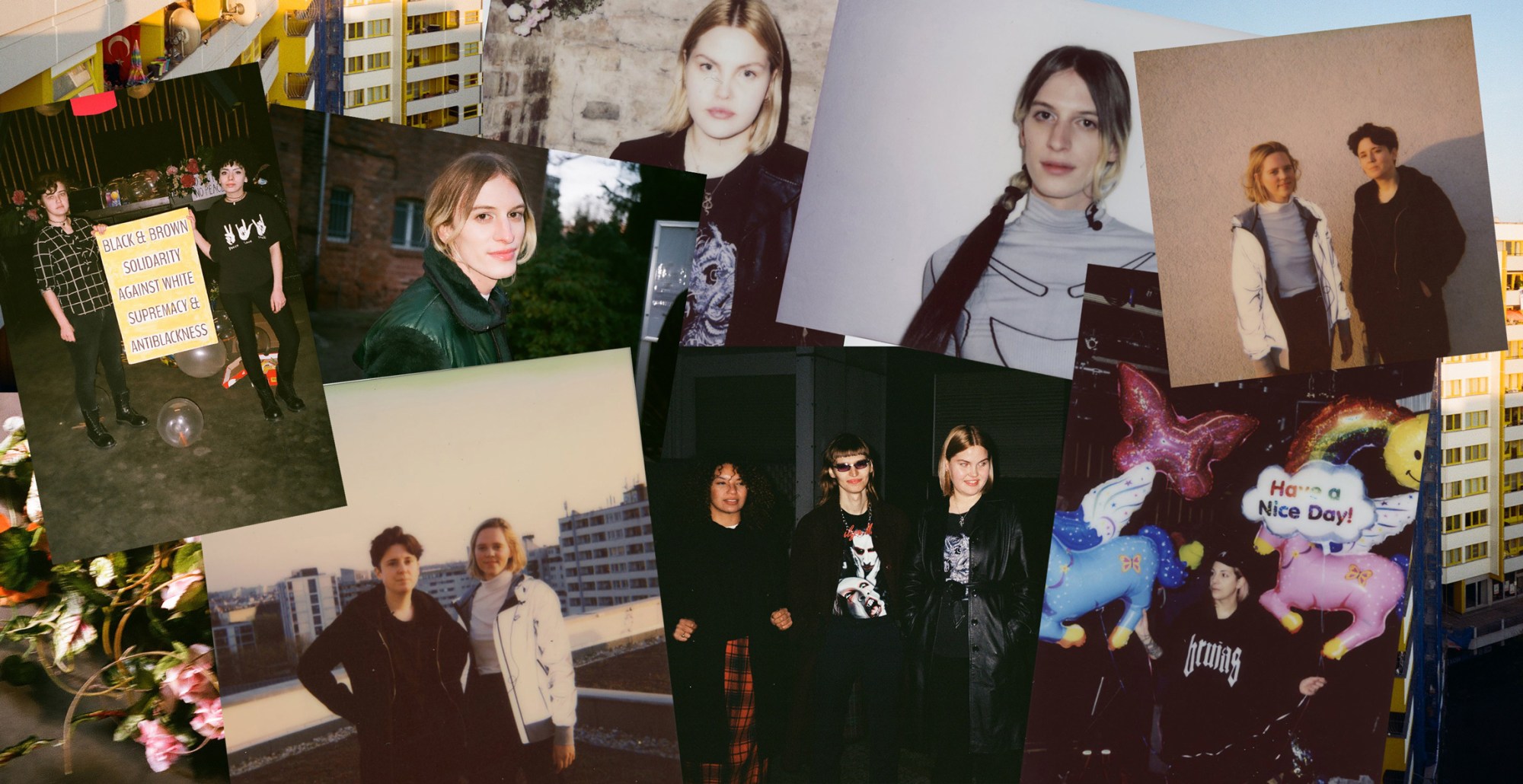This article was originally published by i-D Germany.
In the film series Beyond Clubbing, we explore what makes the underground Berlin party scene so unique. i-D Germany speaks to key figures breaking boundaries with their work, starting important discussions and making the dance floor a safe space for all, without sucking the good vibes out.
Like no other city, Berlin has a reputation for being cosmopolitan, free and unbridled. Here you can reinvent yourself or lose yourself, only to find out who you really are. In the German capital the club is a cultural playground on which personal exchanges and creative exploration are more important than getting fucked up and forgetting what night or day it is —— where going out is more than partying. With this series we talk to the DJs and promoters and performers who are working to make clubbing a truly positive experience.
Daniela Seitz and Anja Weigl, Creamcake
First up, we’ve got Daniela Seitz and Anja Weigl, the founders of the collective Creamcake. Born out of a desire to feel safe on the dance floor as women, the duo decided to organise their own parties, but things kept rolling and they eventually started their own label and music festival. “For us, the parties back then weren’t enough. We wanted to create a platform for women, but quickly shifted our focus away from an all-female line up. Through a diverse and queer booking, we quickly got an audience that was as different as the music you could hear at our parties”, says Anja. From up above the rooftops of Berlin, Creamcake tell us how the Berlin underground scene has become what it is today.
Linnéa
Linnéa is the Swedish-born Berlin-based DJ who wants to change the music scene from the inside through a series of DJ workshops for women and female identifying people. The statement, “but there just aren’t enough female DJs” is as old as electronic music itself. And yet most line-ups are predominantly male. “I feel like a lot of men in my generation grew up feeling confident and curious about the idea of learning to DJ or trying to do it professionally, while for the rest of us, those thoughts never even crossed our minds”, she says. “I can’t remember ever thinking about becoming a DJ until I met a couple of women who were doing it, which immediately inspired me.” Linnea’s goal is to promote women in the scene and make them more visible by sharing knowledge, acting as a mentor for beginner DJs and giving them access to equipment. She put together a mix for the series, on i-D’s Soundcloud.
Lyra Pramuk
In the third part of Beyond Clubbing we meet the singer and performer Lyra Pramuk and get personal. Her story is for those who feel excluded from mainstream culture but find their family and identity through the pockets of progressive nightlife. Before Lyra came to Berlin she felt strange in her own body. “When I arrived, I didn’t know what to do with me. I went out a lot, got drunk, but after a while I realised I had to get my life in line,” she says. Here she shares her transformation, why Berlin is the perfect place for it, and her experiences as a trans woman in the German capital.
Room4Resistance
For the final part of Beyond Clubbing we join the members of the queer-forward collective Room4Resistance into the club and experience firsthand how the dancefloor forms a society we all wanna live in. Luz and her crew organise parties in which they offer members of marginalised groups a space to be themselves and feel completely secure. “Room 4 Resistance parties are full of femmes, unicorns, rainbows, lots of neon colours and good, different music. You will find sexy dancers, a friendly crew and a friendly audience,” she laughs. One of the most important issues they are addressing is the creation of safe spaces: the club as a place where you don’t have to be afraid of experiencing discriminatory behaviour. Instead it’s a space that gives you the freedom to just be whoever you are.
Credits
Text and photography Alexandra Bondi de Antoni
